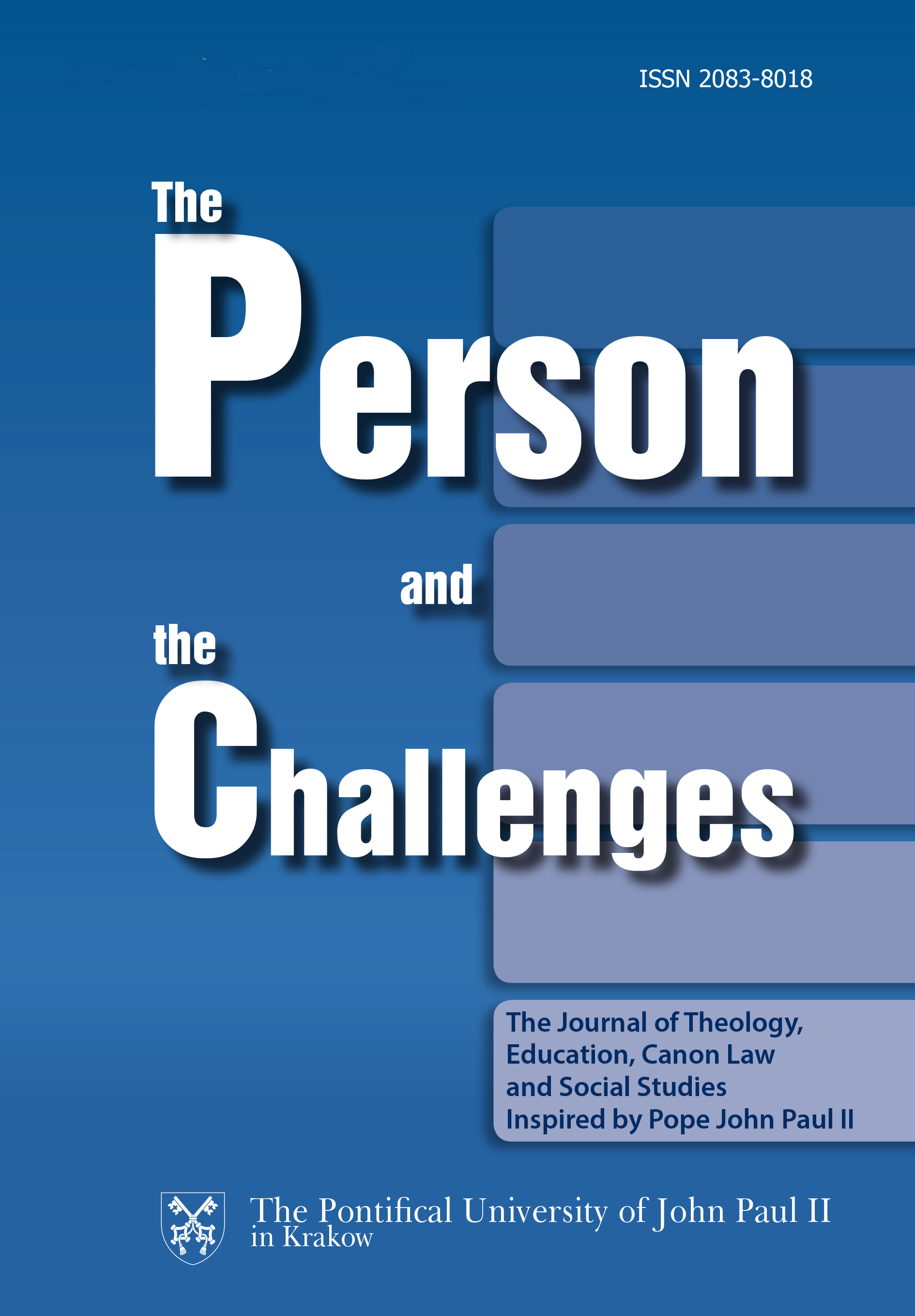
We kindly inform you that, as long as the subject affiliation of our 300.000+ articles is in progress, you might get unsufficient or no results on your third level or second level search. In this case, please broaden your search criteria.


For describing the essence of mana, Marcel Mauss uses a metaphor of „connector”, which can be considered as a function of a total description of cultural context. This function is well seen if the problem is analyzed via Claude Lévi-Strauss or Jacques Derrida’s texts.The metaphor of connector as „the part of the complexed subject predicate, reducing the content of the predicative expression in terms of the time” can be extended on the anthropological field work problematic. While Malinowski, in his culture research, attempts to think in “whole sentences” in the first place for later “grammatical parsing”, Mauss not having a wider context of the utterance, but owning individual “parts of sentence”, has to emphasize on the element connecting them in the logic completeness. Lévi-Strauss, in turn, according to the structural linguistics rules, searches for “realistic” morphology of the cultures’ sentences. Then, their superficial stratum of their sense is used as a path, that leads straight to the phonological relations tier.Correlated positions triggers the problem of “presence”, which stops being the philosophical question, but has the methodological and contextual character in anthropology.
More...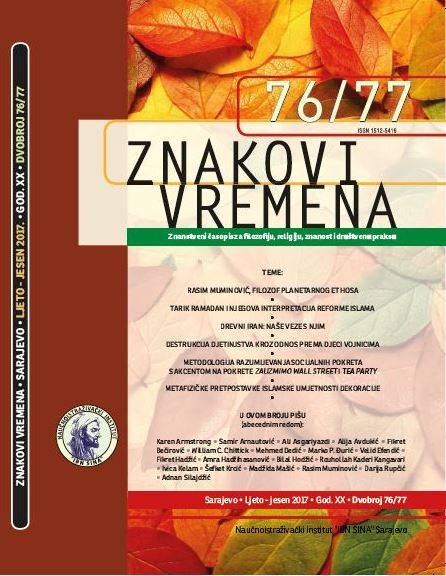
History of the United States records a large number of social movements, moreover, this state was founded due to a movement that emerged as a protest against English colonialists. After World War II, large social movements appeared such as: the Women’s Rights Movement, the Workers Movement, the Peace Movement, the Civil Rights Movement, the Human Rights Movement, the Movement against Nuclear Weapons, the Ecological / Environmental Movement, the Movement against the Death Penalty, the Anti-Global Movement, the Abortion-Rights Movement, the anti-Abortion Movement and LGBT Support Movement. In doing so, one should not forget the Tea Party movement that appeared on the US social and political scene in 2009 as a reaction by the Republicans and conservatives to the election of Barack Obama for the first African-American president of the United States. The 2011 Occupy Wall Street movement emerged as a protest against the banking system and the functioning of the capitalist system. Of course, the Occupy Wall Street movement did not seek the abolition of the capitalist system, but it felt that the current economic framework requires extensive reforms that will not only hit people, but will be an opportunity to eradicate existing political and economic corruption. The thesis on which the work is based is that the Occupy Wall Street movement is still taking place and although its future can not be predicted, given the experience of other socio-political and economic movements of America, this movement will leave a mark and its influence will surely affect economic and legal order of the USA, especially in the banking sector. Also, the slogans and mottos of this movement, even if they happen to be completely destructive, will cause changes on two levels: within the system and in economic relations (financial control and the financial system of the USA) that can not be ignored.
More...
The critical analysis of main conservative and radical philosophical concepts of harmonization of interaction between social, cultural and natural components of human essence is undertaken. The possibilities of such concepts use for solution of modern global crisis of civilization are reviewed. The special attention is applied to world outlook, motivations and social ecology aspects of reviewed problems.
More...
It is crucial to understand the religious ideas of the youth, to set up the adequate pastoral practice. The study presents current trends in the measurement of religiosity and the perception of religion among public. At the same time, it deals with the research focused on the religiosity of the youth in Slovakia and Holand. The research is based on quantitative data and in the same time on result of focus groups in both countries. In addition to evaluation of selected indicators of the research sample, the study presents some differences in religiosity of youth.
More...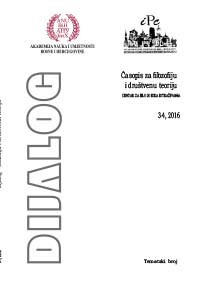
Émile Durkheim (1858–1917) is the founding father of French sociology and his influence has extended well beyond the borders of France. He died one hundred years ago, on the 15th of November 1917. One century after his death, what does our discipline still owe to the works of the man who is known as one of its founding fathers? What new questions and answers have been inspired by his ideas? How have we embraced them and what have the consequences been in theoretical, conceptual and methodological terms? What and why does contemporary sociology owe, for better or for worse, to the scientific writings of Durkheim?
More...
Durkheim’s basic concepts about social divison of labour and solidarity it produces, along with collective and individual conscience are addressed in the first part of this paper. Relevence of these concepts is tested and evaluated on the example of Bosnia and Herzegovina’s development in the last fifty years.
More...
This paper analyzes the sociology of emotions of Erving Goffman, i.e. his theoretical contributions to the sociological study of human emotions. In this regard, emotions are defined as a phenomenon that has an important role, and even a central place in Goffman's theoretical endeavor. In order to prove this, we present his detailed analysis of shame and embarrassment, together with the importance he attached to these emotions considering social organization. Furthermore, Goffman's ideas and conclusions that belong to the sociology of emotions are found in his sociological theories of social rituals and social interactions. For these reasons, emotions are presented as a key element for any appropriate consideration of Goffman's sociological heritage and his contributions to sociological theory. Also, Goffman's sociology is (re)conceptualized as a part of a Durkheimian theoretical tradition, and Durkheim's theory is seen as the key inspiration for Goffman's interest in human emotions. Finally, Goffman's sociology of emotions is also analyzed as a collection of brave and provocative ideas, assumptions and conclusions that are not related solely to this relatively narrow, specific or "esoteric" sociological discipline. Namely, his sociology of emotions is presented as an attempt to integrate (macro)structural and (micro)situational approaches in sociology, which is why it has a wider methodological and (meta)theoretical significance.
More...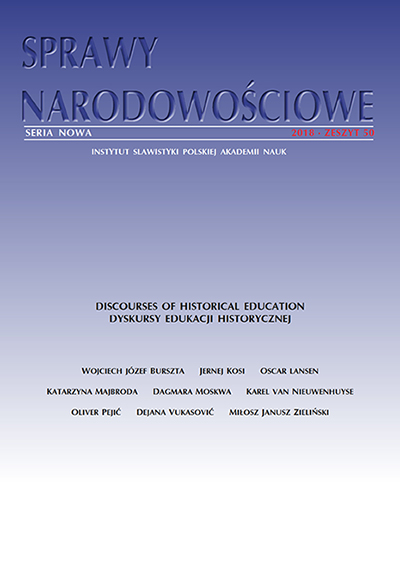
The article presents the main assumptions of primordialist paradigm in sociological studies of nation. It has been assumed that most of surveys conducted in the primordial perspective refers to texts written by Edward Shils and Clifford Geertz. Consequently, the theories of these two scholars are presented. Then the critique of primordialist paradigm is reported. Because of inadequacy of some critical assertions, the heuristic values of some primordialist theses will be characterized, namely a phenomenon defined as a primordial consciousness of nation.
More...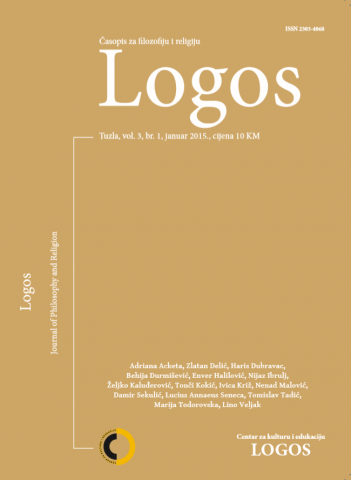
This paper focuses on the practical importance of sociological theories (as well as the theories of practice in general), with the purpose of rational redescription of the changing nature of modern societies. The issues this work tries to provide answers to imply the possibility of alternative means of understanding the transitional changes whose meaning goes beyond scientifically grasped phrase of global social transformation. The focal point of this paper is the attempt of phronetic extension of the earlier diagnosis that the Bosnian conflict and all its forms has become the historical experience of the world. Something that rarely happened in the history of any society actually happened right here in Bosnia and Herzegovina - the breakdown of its social structure while, at the same time, its independent elements enter into conflict, and the social actors lose a value system that allowed and directed their social activities. New work programs are proposed not only in sociology but in Bosnian social sciences that deal with transitional studies of local consequences of global change.
More...
In a very general sense, sociology is a science that deals with the description of societies and their development. In this context, an interest in civilisations may be one of the major research problems, as it may stimulate the research synthesising different directions and concepts in order to create modern theoretical approaches. The article presents selected theories of civilisation, which predominantly function in the field of social sciences. Detailed analyses concern theories formulated, among others, by O. Spengler, F. Koneczny, S. Huntington, S. Eisenstadt or F. Fukuyama.
More...
IRC has evolved into new strategies to build up an identity in a cyber space as well as to create important systems to be shared. This sharing is done among people who have similar interest and topics from all over the world, and they meet and talk in a virtual meeting point of the Internet. The strategies necessary in the space consist mostly of linguistic resources, since the approach to visual or auditory features such as appearance or accents are crucial factors for identity forming. This paper focuses on establishing the concept of virtual identity from the viewpoint of 'social constructivism', the idea that an identity can be readily changed due to its fluid nature in the cyberspace and by a participant's willingness, unlike the essentialist view of a unified and coherent identity. Based on the theoretical framework of socialconstructivism, it is meaningful to analyze how chat participants may develop and sustain their identity in IRC chatrooms by using several linguistic and/or graphic resources such as nicks, emoticons, actions and gestures, graphic cues, topic choice, and interpersonal strategies on the web.
More...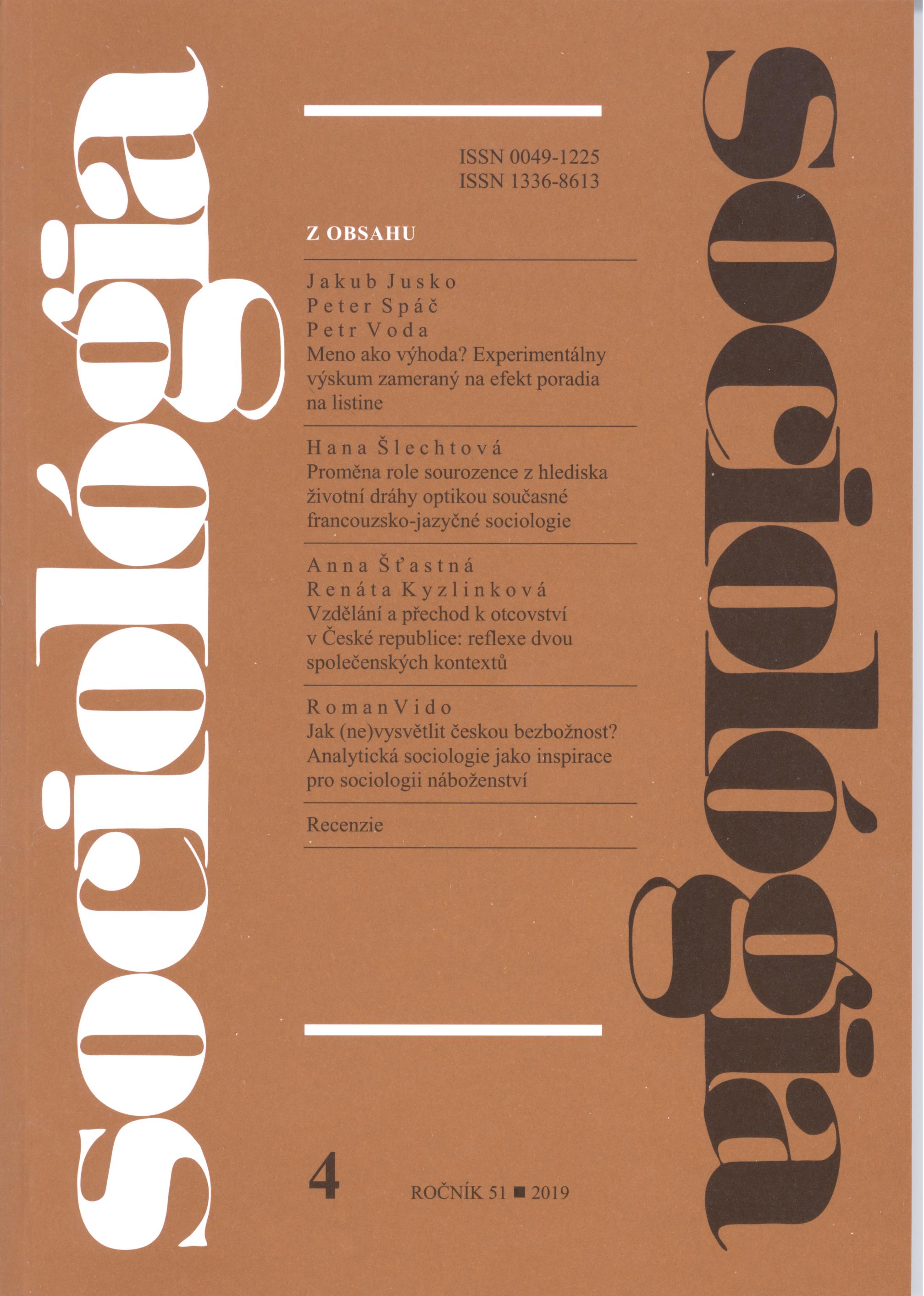
Variation of the Sibling’s Social Role from the Life Course Perspective through the Lens of Contemporary French-Language Sociology. Based on the social role theories of Linton and de Singly, the article presents the sibling’s social role over the life course, as rendered by contemporary French-language sociology, both explicitly and implicitly. Most publications focus on childhood and adolescence, especially in blended or poor large families. A sibling is an actor of socialization, can be a companion, a complice, a confidant, a rival, or may remain distant. Birth order, sex or (non)living in the same household are of importance. The adult siblinghood is little studied; based on the literature it is difficult to trace its stages in matter of the role. Yet the role of a "kinkeeper", a confidant, a helper in need can be traced. Siblings are involved in building family memory. Sibling interaction is also expected in relation to the status of children, heirs and successors of the same parents. The analysis of literature revealed missing places requiring further research and showed the great potential of French-language sociology.Sociológia 2019, Vol. 51 (No. 4: 367-392)
More...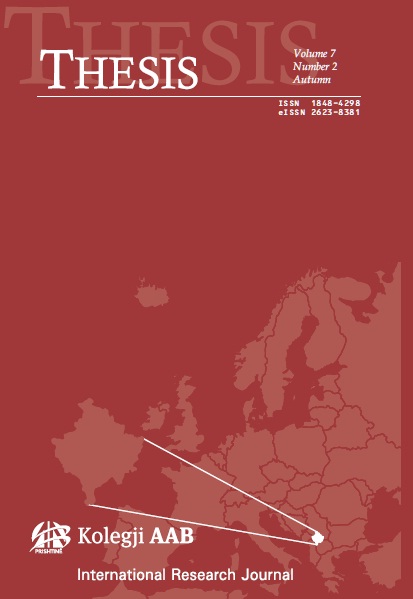
The topic to be discussed here puts in focus the counter-induction approach - the conditions, circumstances and incentives, which made Feyerabend to constitute it, and the enlightening role that it plays, respectively, should play. This opposite perspective de jure lacked science and de facto has always been implemented but as an illegitimate approach.In the methodological aspect of scientific research, the dual role of the methodical rules will be considered, which also help the research to be successful and even turn it into a dogma by narrowing and limiting the search because of their exclusivity. Relatedly. the tensions, criticisms and methodological developments will be taken into account to make the research more efficient.The aim is to show that counter-induction is met by a great deal of shortage in the methodological approach, which, as it will be argued, makes the research itself more open and removes its obstacles.
More...
In this paper, the analysis was carried out for the purpose of understanding the process of development of theory by interpreting data gathered by empirical research so that we could determine the extent to which the grounded theory was objective and reliable, and what are the potential difficulties researcher may face in the application of this approach. Starting from the analysis of the basic sociological dichotomies theoryempiria, induction-deduction, quantitative and qualitative research we tried to recap the basic principles of grounded theory, putting the special emphasis on the problems of uncertainty in the process of grounded theory development and contextual causality of the theory, the theoretical sensitivity, time complexity, theoretical saturation, the question of consideration and evaluation of theory and research and researcher bias, and all in order to discover the cognitive potential of this methodological approach.
More...
Granovetter's theory of strength of weak ties has been one of the most influential ideas in social sciences for the past forty years. Its basic assumption is very simple, but its explanatory power proved to be great. This paper shows how the idea developed and changed in Granovetter's papers, and shows some of his lesser known speculations about weak ties.
More...
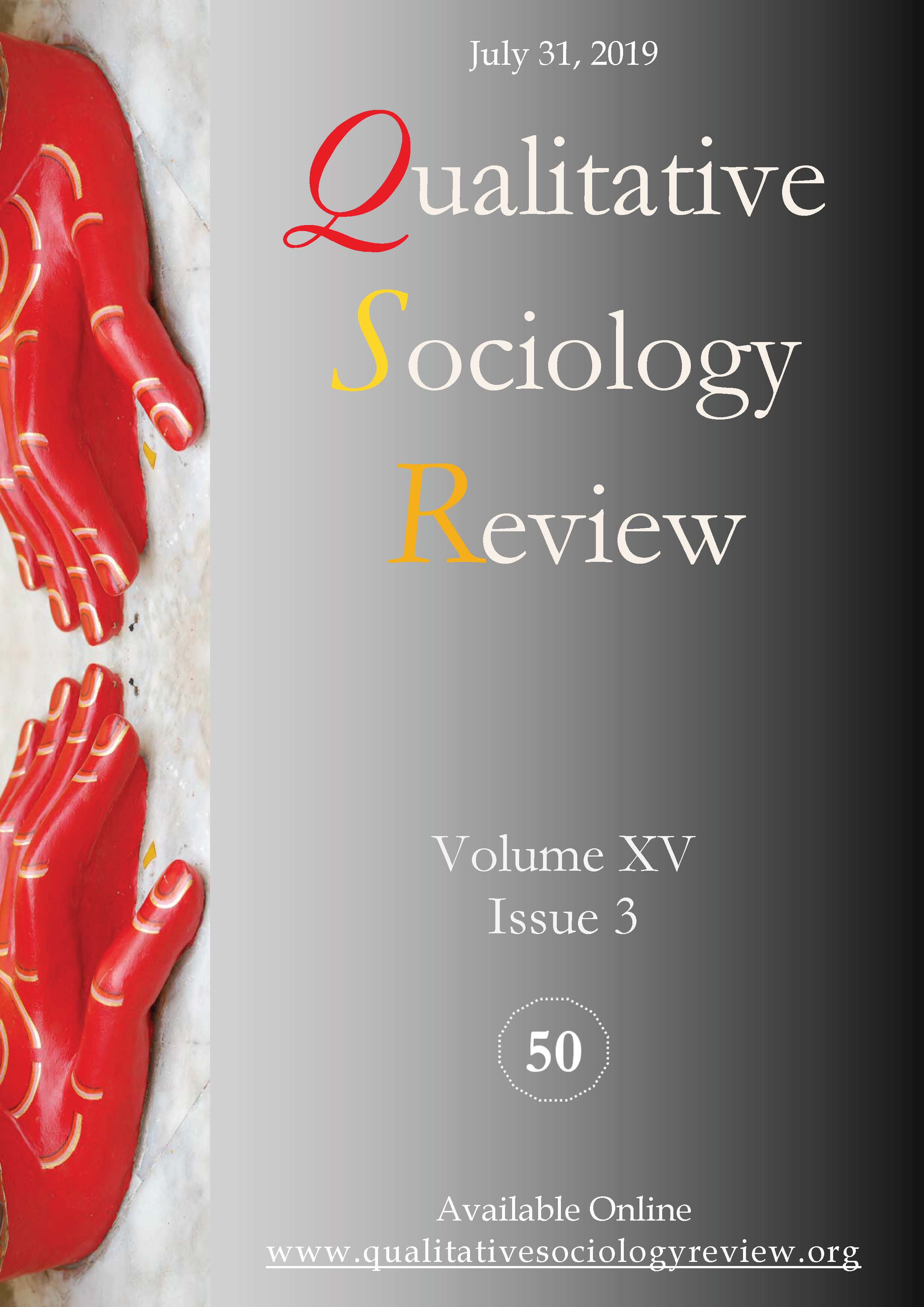
This article builds on recent sociological debates about the explanatory importance of claims-making contexts and the continuing challenges associated with subjectivism and objectivism in social problems research. The sociology of knowledge is used to illustrate how the contextual compromise that has sustained social problems theory and method for at least two decades is based on a number of erroneous assumptions about subjectivity and objectivity in the tradition of phenomenological analysis. To strengthen recent discussions about the contextual dimensions of claims-making activities and framing techniques, the article critically assesses the curious neglect and continuing misrepresentation of the sociology of knowledge in constructionist analyses of social problems.
More...
This article explores the use of biographies in qualitative research about collective memory. It is argued that commemorative ceremonies, as well as changes appearing in macro-level structures within the time-span of individuals’ life histories need to be included when analyzing biographies in collective memory studies. The article suggests enhancement of the biographical case reconstruction method (Rosenthal 1993; 2004) with two additional stages: analysis of the experienced past with more emphasis on socio-historical transformations; and inclusion and analysis of the ethnographical data collected from collective mnemonic practices. By providing empirical data from the research conducted with political exiles in Germany, these analytical steps of the method of socio-historical analysis are demonstrated in detail
More...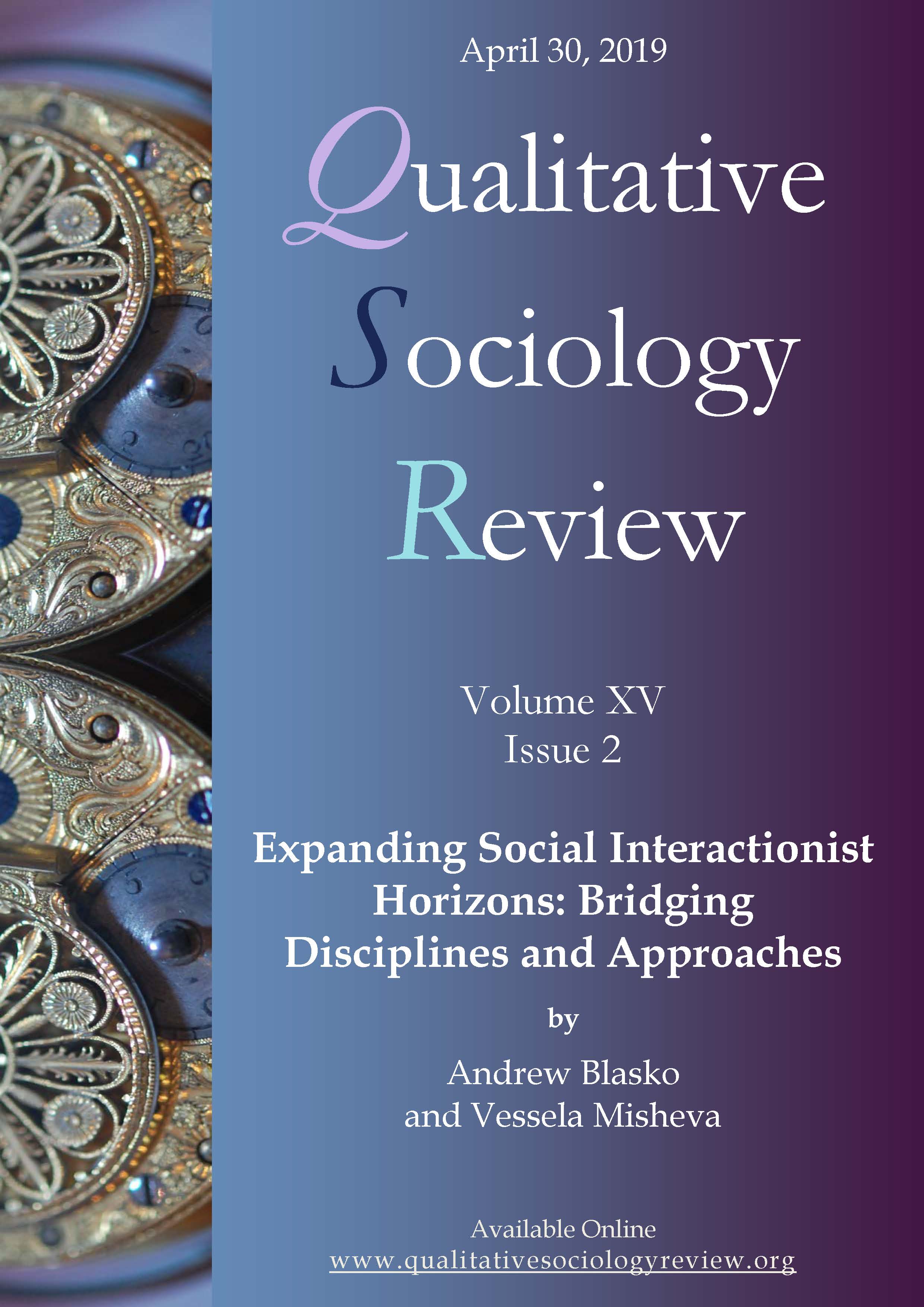
This discussion assesses the utility of Goffman’s thinking about conversational interaction for illuminating features of a research interview between one of the two authors (LM) and a fellow social work professional. We use this case to explore aspects of Goffman’s contribution to the sociological understanding of spoken interaction. While many of his ideas offer rich sources of guidance for interactionist and qualitative researchers, the value of Goffman’s (1974) concept of “dramaturgical replaying” has been overlooked. We trace the leading themes of Goffman’s thinking about conversational interaction and show how they can provide an analysis of the story of the “Nearest Relative” that is attentive to its live, improvised enactment. Goffman’s approach to storytelling is shown to be distinct from but complementary to conversation analytic approaches to storytelling.
More...